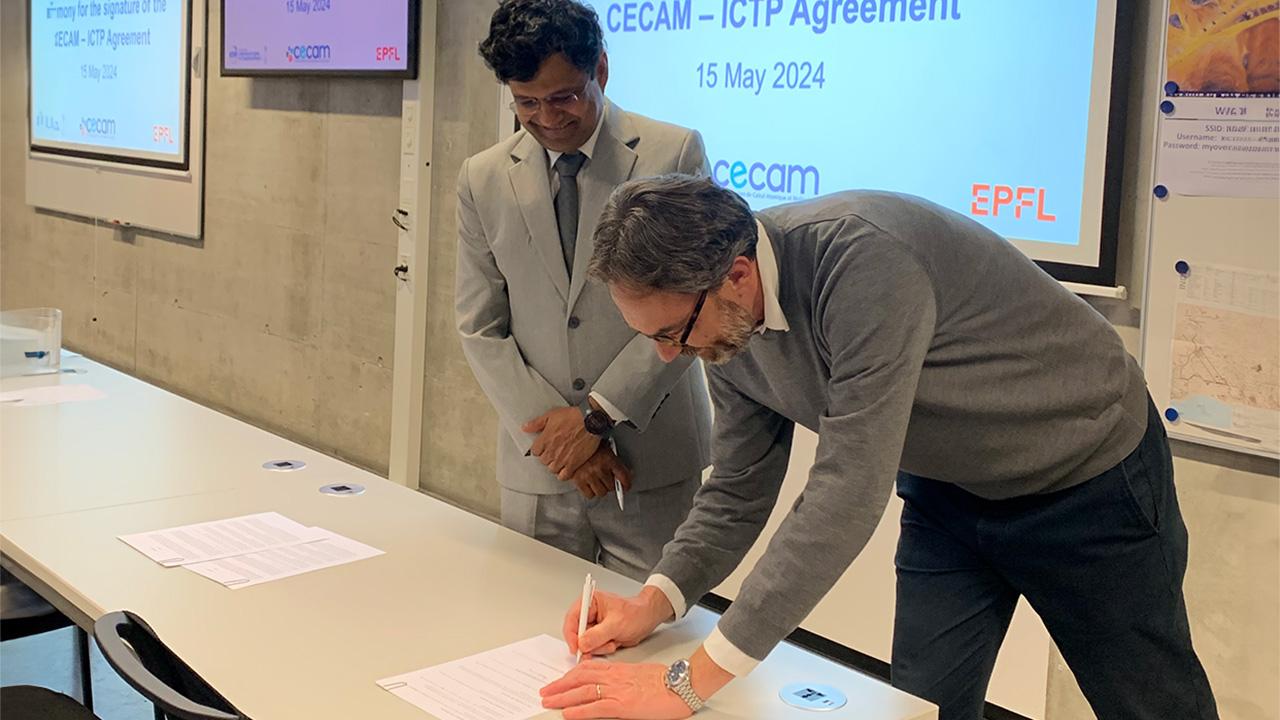
Advanced science relies more and more on scientific computing and requires complex calculations performed on large data that can only be performed on powerful and fast computational infrastructures. Supercomputers are expensive facilities that rely on high energy consumption, which explains why the fastest and most powerful among these resources are all concentrated in a few, developed countries, thus heightening the risk to increase the scientific gap with the developing world.
In line with its mission to promote advanced science globally ICTP has recently signed an agreement with the Centre Européen de Calcul Atomique et Moléculaire (CECAM), an organization that promotes fundamental research on advanced computational methods and their application to relevant societal challenges. The aim of this new partnership is to facilitate access to European high performance computing (HPC) resources for researchers based in Africa.
The agreement was signed on Wednesday 15 May by ICTP Director Atish Dabholkar and CECAM Director Andrea Cavalli, during a ceremony that took place at CECAM headquarters, at the Ecole Polytechnique Fédérale de Lausanne, Switzerland.
Through this agreement, ICTP and CECAM commit to establish a program to give access to European HPC resources to scientists and research teams in Africa, and who apply scientific computing to do research in atomic and molecular physics, materials science, chemistry and biology.
Andrea Cavalli, Director of CECAM, stated: “Fostering the growth of computational science in emerging countries, starting with a set of actions in Africa, is of clear strategic interest for CECAM. Access to high-end HPC facilities represents a key challenge for the African computational community. We believe that the projects at the core of this new partnership with ICTP will provide an excellent basis to mitigate this problem and, in addition, create new training opportunities. We look forward to building on this Agreement to explore further collaborations with ICTP.”
“Due to the increasingly important role that scientific computing has had in advancing science, making computational resources globally available has become indispensable to ICTP’s mission to promote science globally,” explained ICTP Director Atish Dabholkar. “This partnership with CECAM constitutes a very important step in this direction and we look forward to strengthening our collaboration and to the new opportunities that this will create to work side by side with African scientists,” he concluded.
ICTP has recently forged key collaborations such as the Open Quantum Institute, launched by the Geneva Science and Diplomacy Anticipator (GESDA), and the AI Alliance, promoted by IBM, to make the AI and quantum revolutions globally inclusive.
















